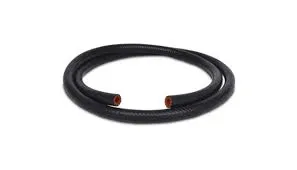brake pipe
Oct . 17, 2024 01:07 Back to list
brake pipe
Understanding Brake Pipes The Unsung Heroes of Vehicle Safety
When it comes to vehicle safety, many drivers often overlook the intricacies of their car's braking system. Among the various components that ensure a vehicle comes to a stop safely, brake pipes play a crucial yet often unappreciated role. Brake pipes, also known as brake lines, are responsible for transporting brake fluid from the master cylinder to the brake calipers or wheel cylinders. This crucial function is essential for effective braking performance and overall vehicle safety.
The Basics of Brake Pipes
Brake pipes are typically made from either steel or a polymer composite. Steel brake pipes are favored for their strength and durability, while polymer pipes offer flexibility and resistance to corrosion. Regardless of the material, the function remains the same to deliver hydraulic pressure generated by the brake pedal to the braking mechanisms at each wheel.
When a driver depresses the brake pedal, it activates the master cylinder, which forces brake fluid through the brake pipes. This pressurized fluid travels through the pipes, engaging the calipers or cylinders at each wheel. This process not only slows down the vehicle but also brings it to a complete stop. The reliability of this system is paramount; any failure in the brake pipes can lead to catastrophic consequences.
Common Issues with Brake Pipes
Over time, brake pipes can suffer from wear and tear due to exposure to various environmental factors. Corrosion is a significant enemy of brake pipes, especially in regions where roads are salted during winter months. Salt, moisture, and road debris can cause rust to accumulate, weakening the structure of the pipes. A compromised brake pipe can lead to brake fluid leaks, resulting in decreased braking efficiency and potentially dangerous situations.
Another issue is the expansion or contraction of the pipes due to temperature changes. During frantic stops or heavy braking, the brake fluid heats up, and if the pipes are not of high quality, they may not withstand the pressure, leading to ruptures. Regular inspection and maintenance of brake lines are crucial to identify such problems early.
brake pipe

Preventive Measures and Maintenance
Maintaining brake pipes is not just about checking for leaks; it also involves ensuring that the entire braking system is functioning optimally. Drivers should have their brake systems inspected regularly, particularly before long trips or adverse weather conditions. Mechanics typically look for signs of corrosion, inspect the connections and fittings, and check the overall integrity of the brake pipes. Replacing worn or damaged brake lines promptly can prevent more severe issues down the line.
Moreover, drivers can take proactive measures by keeping an eye on their brake fluid levels and ensuring the fluid is clean and free of contaminants. Dirty or contaminated brake fluid can lead to brake failure, as it may not provide the necessary hydraulic pressure needed to operate the brakes efficiently.
The Role of Technology in Brake Pipe Safety
Advancements in technology have also contributed to enhancing brake pipe safety. Modern vehicles often come equipped with technologies like anti-lock braking systems (ABS) and electronic stability control (ESC), which rely heavily on the effective functioning of brake pipes. These systems can help prevent skidding and maintain vehicle control, but their effectiveness is directly tied to the integrity of the brake lines.
Manufacturers are now also designing brake pipes with improved materials to combat the issues of corrosion and temperature fluctuation. Composite materials that are lightweight yet strong are being tested and implemented, providing a more resilient option for brake lines.
Conclusion
In conclusion, brake pipes may not be the first component that comes to mind when thinking about vehicle safety, but they are indeed among the unsung heroes of the braking system. By understanding their importance and common issues, drivers can take proactive steps to ensure their vehicle remains safe on the road. Regular maintenance, vigilance, and leveraging advancements in automotive technology can help keep brake pipes in excellent condition, ultimately ensuring a safer driving experience for everyone on the road.
